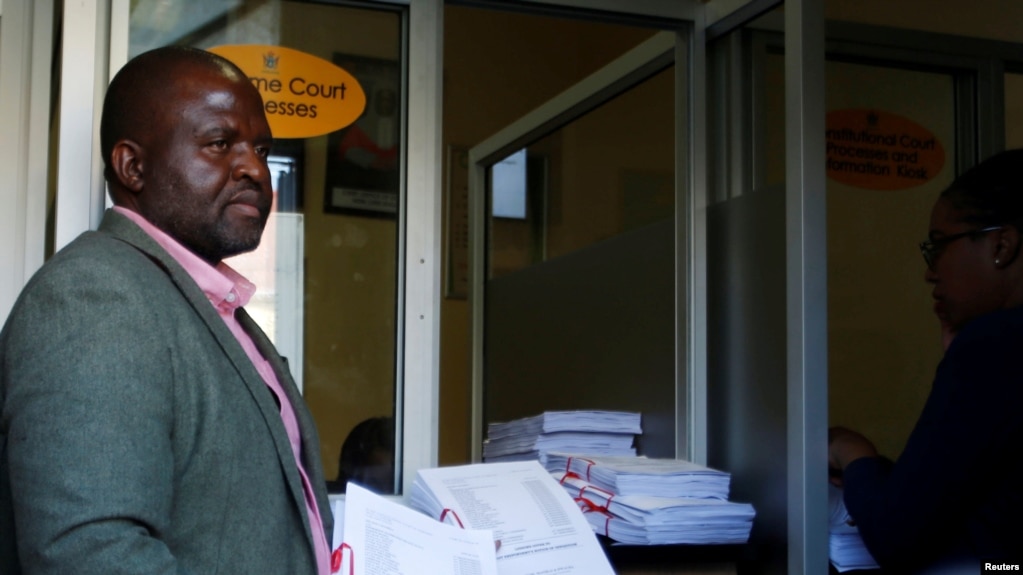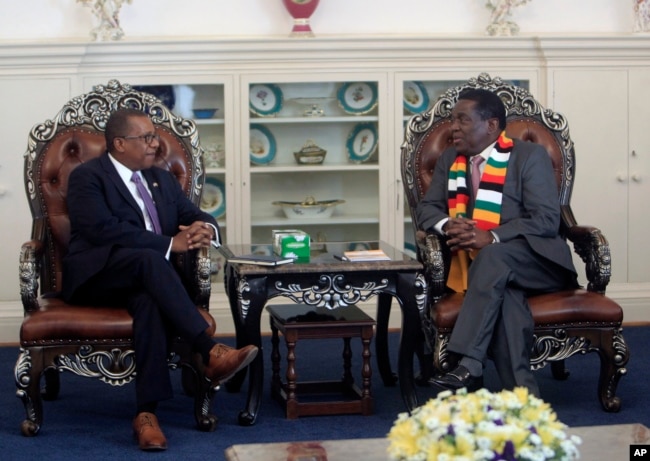
Zimbabwe’s Electoral Commission declared President Emmerson Mnangagwa won the poll with just under 51 percent of the vote. It said Chamisa finished second with 44 percent.
Chamisa called the results a “subversion of the will of the people.” He welcomed a decision by the Southern African Development Community (SADC) leaders postpone congratulating Mnangagwa when they met in Namibia over the weekend.
“This is the message I have to SADC: please help us, help the African continent and help ourselves by ensuring you help cure the divisions that are in the country.”
Chamisa called for a cure for the “illegitimacy, the electoral stalemate.” He appealed to SADC to “come in to start help us negotiate a respectable exit for Mr. Mnangagwa, for those who have been voted out. SADC, you are the guarantors of peace, the guardians of prosperity, progress and freedom. It is important that you have a hands-on approach on the Zimbabwean situation.”
Alexander Rusero, a senior journalism and international politics lecturer at Harare Polytechnic College, said Chamisa’s appeal to African bodies like the African Union (AU) should have come immediately after Zimbabwe’s election.
“The opposition were a bit slow to embrace and make meaningful diplomatic contact with critical regional organizations like SADC and AU,” he said.
Rusero said instead of “running to America, running to Britain,” the opposition should have started “from within.”
“In terms of diplomacy, you do not start negotiating from outside,” he noted. “They [the opposition] have displayed arrogance and disregard for [the] AU.”
The 40-year-old Chamisa refused to commit to accepting the ruling of the court if he loses his election petition, as many observers say is likely. He said the MDC-Alliance would instead follow all “legal and constitutional” routes available to appeal the election results.



